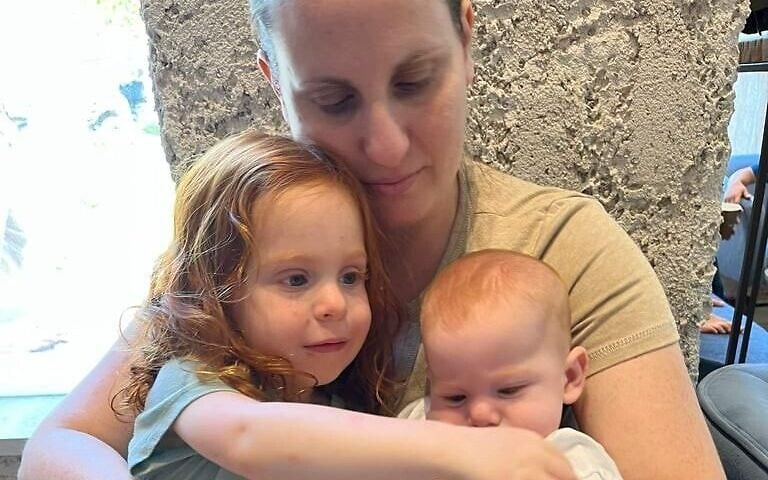It pains me to write this article but it’s probably more painful if I don’t. It pains me to write this article because of several reasons. One, I sell insurance and this public service announcement may appear self-serving. Secondly, I am the husband of a director of a large camp who pays a substantial amount of money in rent, insurance, and taxes, which again may appear self-serving. Let me be transparent and unequivocal: while I’d love for you to be a client of mine or a parent of my wife’s camp, I’d much prefer your children to have a safe and FUN camp experience that’s covered by insurance should the need chas v’shalom arise.
It also would pain me to NOT write this article, because I imagine if I have some experience and knowledge in this area and I don’t share it, that makes me responsible in some way. There are many issues to think about when operating a backyard camp or sending your child to one. I’ll elaborate on a few that come to mind.
One, if a child gets injured in a backyard, it’s likely a homeowners insurance policy will decline such a claim. Since there is no coverage for operating a business out of a home, let alone one that watches a gaggle of children. Two, oftentimes backyard camps will have a “trip” to a neighbor’s pool, 7-11, or to another backyard camp. The neighbor’s homeowners’ policy will also NOT cover an accident at the pool. Nor will your automobile policy cover ferrying children around town for camp trips. Lastly (for the sake of brevity), should a counselor become injured on the job, his/her health insurance could also decline coverage. Since this could be considered a “workplace” accident, it is something workers comp insurance should cover NOT regular health insurance.
So, now that you are a little more educated about the behind the scenes operation of a camp that operates out of a rented premises with all required insurance you should also understand, why they charge what they do. I recognize there IS a significant difference in camp tuitions but what you are saving may cost a lot more in the long run.
Y.P.
The views expressed in this letter do not necessarily represent those of YWN. Have an opinion you would like to share? Send it to us for review.












12 Responses
Does the letter writer have a cleaning lady ? Is she paid on the books and does he pay her workers comp insurance?
A backyard camp can get insurance and it is cheap
1) since this can also happen in a playgroup yet the writer is only writing about camps, shows his negius
2) since this isn’t a legal playgroup the insurance won’t know and is no different than a group of kids that are your friends being allowed on your property
3) since this isn’t a legal playgroup the worker doesn’t file worker’s comp because it didn’t happen in his “job”
Please explain how I’m wrong
I’m a Risk Manager and I have different view on this, the fact that there is no coverage will keep the greedy ambulance chasers away from this case, these slime lawyers are looking for low hanging fruit. 2 Auto covers casual use and will be covered, 3 unless there is a catastrophic injury health insurance will cover.
PS while I never sold a policy I worked in both underwrote and worked claims for an insurance company.
Good point. But let’s do some math. The ‘regular” camp is approximately $800 more than the “backyard” camp (per camper), they have around 325 campers which would come out to be over $250,000 in “extra” money. I find it very hard to believe this is only for “rent” and “insurance”.
I do understand that “backyard” camps are geared for younger children and “regular” camps are also geared for older children – which brings along other expenses for the older children. Regarding the younger children both camps have a very similar program and the expenses (aside for rent and insurance) should be more or less the same. I would understand a nominal price difference for the “regular” camps but why is one charging $800 more????
Insurance is a money making business; like all businesses. Insurance companies are not in existence to help protect people; they exist to make money. They charge outrageous premiums and then “nickle and dime” you when you have the chutzpah to file a claim. The letter writer would do better to do a cheshbon hanefesh on herself to see how she can justify being involved in the insurance business before she tells the rest of us what to do.
Calm down – The insurance is really for the day camp pool owner etc. so they don’t get sued for an injury. If the day camp or pool doesn’t have insurance your own insurance will like cover your injury – they may go after the homeowner pool owner etc.
Letter should be addressed to those running day camps and pool owners..
I hear, but why say it “may appear self-serving” as if it’s not. You clearly see it from a negative point of view (“good – there isn’t any”) because you are clearly financially on the other side.
Your points are definitely valid, but here are some merits – because yes, there is good as well: Parents get to pay way less for a great camp, while camps now have to be more competitive in their value they provide.
For many years (till a decade ago) two of my daughter ran a wonderful backyard camp. It was everyone’s gain. They/we took tremendous care and responsibility, and they always enjoyed great feedback, with b”h no big trouble.
Given that the author is anonymous, I don’t see how this can be self serving, and I commend him for speaking up.
Everyone is entitled to do as they wish, but they should also be informed of the risks.
There is no need to bashmutz the author, just say thank you for informing me of my risks.
2 points
This whole shmuz doesn’t belong here , ain’t lechoh yofeh min hatznius in these inyonim
I was a head counselor for 20 plus years ..after all the toiras , frum backyard camps have not been sued and it works, because there is no assets vehamavin yovin
Finally veyishmerechah
Wow!
I’m glad to not be you!
The only negative you done with backyard day camps is the (supposed) lack of insurance based on a flimsy theory that “they won’t cover”.
You couldn’t find a single thing good to say like “it’s more personable” or “there’s a much lower likelihood of a cops getting bullied” or “I can get ahold of the director easily to discuss concerns” or “I know all three of the counselors personally, and two of them are my neighbors” etc..
Now let me be clear, I’ve only ever worked for big camps (about ten years in different roles), but I am well aware of the benefits of a small camp.
Anytime a friend or family member asked me to help them open a “backyard camp” one of the many things I explained to them was the need for insurance and how to go about obtaining it. It’s not that expensive.
And please also bear in mind that a child is much less likely to get hurt badly in a small camp.
P.s. I am not always obsessed with “quotation marks”
To coffee addict: Here is how you are, or might be, wrong:
You did not say so, but I assume that a “backyard camp” is a camp or playgroup run in someone’s backyard, and each camper’s parents pay money to the operator/owner. A homeowners’ insurance policy typically provides that it does not cover liabilities arising out of the operation of a business. For example, an accountant or physician practicing out of his/her home is not covered for professional malpractice under his/her homeowners’ insurance policy. (The same would apply to an insurance agent or broker.)
To make a claim against a homeowners’ policy for liabilities arising out of the operating of a business, the policyowner/claimant would have to make false statements about the nature of the claim.
I don’t know how often a homeowner gets away with your proposed scheme, but is unlawful. Maybe you know.